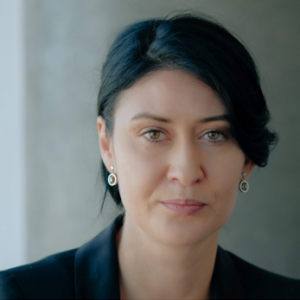:quality(80)/business-review.eu/wp-content/uploads/2024/06/dreamstime_xxl_136618819-scaled.jpg)
The Romanian private equity (PE) market recorded two major exit deals worth around EUR 1.5 billion in 2023, with another deal to the tune of around EUR 1 billion expected in the private healthcare sector this year. All in all, more investments made by PE funds have reached maturity, which could translate into more sales, with fresh funding set to be supported by an envisaged interest rate cut in the second half of 2024.
By Ovidiu Nicolae Posirca
In 2023, the deals performed by PEs on the Romanian mergers & aquisitions (M&A) market represented 21% in terms of volume and 14% in terms of value, according to PwC Romania data.
“We expect this share to increase in the coming years, including in 2024,” George Ureche, director and M&A leader at PwC Romania, tells BR. The M&A sector in Romania posted transactions with a combined value of EUR 4.3 billion during 2023, down 20% from 2022.
More PE investments enter maturity stage
Ureche suggests that PE funds will continue to be active players on the local M&A market, fuelled by increased demand from entrepreneurial companies to find equity partners that can bring best practices in corporate governance and financial management.
A growing number of PE investments are approaching 4 to 6 years of ownership, which is the period when they usually get divested. Some PE funds have already kept investments for even longer than that, so exits are a “must,” according to consultants.
Roland Berger data shows that at the end of 2023, Romanian companies owned by PEs have been held by the funds for an average of 4.6 years.
Around 40% of local companies have been held by PEs for over 5 years, while more than 10% of companies have been under the ownership of such funds for over a decade.
“We anticipate an increase in the number of exits by private equity funds from companies this year. The macroeconomic environment in Romania, as well as globally, is expected to gradually improve, which should bolster valuations and create favourable conditions for exits. Improved market stability and economic growth will likely enhance investor confidence, making it an opportune time for private equity funds to realise their investments,“ Bartosz Kwiatkowski, partner at Enterprise Investors (EI), responsible for investments in Romania, tells BR.
Last year, the largest deal with a PE component was MidEuropa’s sale of supermarket chain Profi to Ahold Delhaize, the owner of the Mega Image supermarket chain, for EUR 1.3 billion. This was the largest grocery deal ever in continental Europe involving private equity as well as the biggest transaction involving grocery players in Central and Eastern Europe (CEE). This year, MidEuropa is also seeking to sell private healthcare services operator Regina Maria in a deal expected to rake in around EUR 1 billion, according to media reports.
The second biggest transaction with PE involvement was NCH Capital’s sale of bakery group Vel Pitar to Bimbo Group, for around EUR 200 million.
The Romanian market remains attractive to financial sponsors. This is due to a combination of factors that include higher GDP growth compared to Western Europe, stronger consumer purchasing power, and more mature companies.
Szabolcs Nemes, managing partner Roland Berger Romania, explains that several new PE funds emerged in Romania over the past years, which are in the fundraising and investment stage. This share is higher on the local market compared to other European countries.
“In 2024, private equity investors are likely to focus on resilient firms with adequate capital structures, portfolio add-on acquisitions, and on beneficiaries of long-term trends such as the green energy transition and digital transformation. Furthermore, private equity players are well positioned to deploy capital in a volatile environment compared to strategic players who have a relatively more rigid investment framework,“ says Iulia Bratu, partner and lead Advisory at EY Romania.
Furthermore, a boost to the PE industry will come from the Romania Recovery Equity Fund of Funds (REF), a component of the country’s EUR 29 billion Recovery and Resilience Programme (PNRR). The REF scheme offers financial backing to chosen PE and venture capital (VC) funds that target investments in Romanian companies, particularly in technology, innovation, green economy, and social impact sectors.
EI’s Kwiatkowski names succession planning and market consolidation, including foreign expansion, as the main drivers of demand for PE deals in Romania this year.
“Many family-owned companies are facing generational transitions where founders are looking to retire and pass on their businesses. This creates opportunities for PE funds to step in, provide capital, and facilitate smooth transitions. The market is seeing increased consolidation as companies seek to strengthen their positions and expand into new local and foreign markets,“ he adds.
Sectors on PE funds’ radar
In Romania, EI is mostly interested in IT, business processes, and healthcare. Kwiatkowski points out that the IT industry is boosted by the highly skilled workforce and competitive cost structure, while in healthcare there is increasing demand for high quality services and innovation in medical technology.
Last year, Consumer Products & Retail (CPR), Advanced Manufacturing, Technology, Media & Telecommunication (TMT), and Healthcare were the most active sectors by deal count, while in 2024, CPR continues to be an attractive sector, says Bratu of EY Romania.
Industrial products and services (especially specialised manufacturing), pharma, and FMCG are also sectors of high interest for PEs, but in a more competitive playground against strategic buyers.
Ruxandra Bologa, partner at NNDKP, added that we are already seeing the first signs of an increase in PE investments in sectors such as green energy (renewables) and energy efficiency due to the EU energy policy.
Lower interest rates could mean more PE-backed investments
Interest rates in the US and Eurozone have not entered the decrease cycle yet, although momentum is building for such a move starting with the second half of 2024 once the stubbornly high inflation environment tones down. For PE funds, this could bring increased capital availability and higher valuations for their investments.
In 2023 valuations declined, and sellers were unwilling to exit at a discount. In this context, many of the deals that didn’t come to market in 2023 will fuel active dealmaking in 2024, including a backlog of PE portfolio companies that need to become marketable M&A-wise, according to PwC Romania’s Ureche.
“When interest rates fall in the US and Europe, investors might look for higher returns in emerging markets, such as Romania. This can lead to an influx of foreign capital into the local PE market, further boosting deal activity and valuations,” says Radu Dumitrescu, Financial Advisory partner-in-charge at Deloitte Romania.
But Romania’s inflation rate has been stickier than those in developed economies, which is likely to cause the National Bank (BNR) to only narrowly reduce its policy rate of 7.0% in 2024. The source of financing for PE funds in terms of country of origin will therefore be a key driver for leveraged buyouts.
“Depending on the trajectory of inflation, monetary policy is bound to return to a more accommodative stance in the medium term both globally and in Romania, which will help boost private equity M&A activity. The strength of this effect on deal appetite remains to be seen, as central banks will most likely not return to the ultra-low interest rate policy observed in the period following the 2008 financial crisis,” explains EY Romania’s Bratu.
Lower interest rates could boost further exit deals on the local market as lower borrowing costs make it easier for potential buyers to finance acquisitions.
“Fundraising efforts for private equity funds are likely to also benefit as investors seek higher returns in a low interest rate environment, driving more capital into private equity investments,” says Kwiatkowski of EI.
Consultants suggest that as interest rates stabilise and even possibly decline, PE firms will re-enter or become more active on the market.
“Although PEs do not benefit from revenue and cost synergies (unless they perform bolt-on acquisitions) and are facing higher financing costs, they could differentiate from strategic buyers through determination and speed, which are of paramount importance in a transaction,” concludes the PwC Romania director. Lower interest rates also benefit corporate buyers, who can access cheaper financing for acquisitions. This increased competition from strategic buyers can make it more challenging for PE firms to secure deals at attractive prices.
To sum up, lower interest rates could generate fresh inflows of foreign capital and greater competition for investment opportunities on the Romanian market, ultimately leading to a more dynamic and competitive PE sector.
“Overall, the PE funds active in Romania anticipate that 2024 will be a year of growth, with higher volume of activity compared to the previous ones,” Nemes tells BR, citing the conclusions of a PE survey carried out by Roland Berger across Europe.




:quality(80)/business-review.eu/wp-content/uploads/2024/05/BeFunky-collage-99-scaled.jpg)





:quality(80)/business-review.eu/wp-content/uploads/2024/06/22C0420_006.jpg)

:quality(80)/business-review.eu/wp-content/uploads/2024/06/COVER-1-4.jpg)



:quality(50)/business-review.eu/wp-content/uploads/2024/04/echipa-Deloitte_tranzactie-AQUILA-Romtec.png)
:quality(50)/business-review.eu/wp-content/uploads/2024/03/BeFunky-collage-5-scaled.jpg)
:quality(50)/business-review.eu/wp-content/uploads/2024/03/Alin-Chitu-Deloitte_01-scaled.jpg)
:quality(80)/business-review.eu/wp-content/uploads/2024/06/br-june-2.jpg)
:quality(50)/business-review.eu/wp-content/uploads/2024/06/Noemi-Ritea_VELUX-Ro-scaled.jpg)
:quality(50)/business-review.eu/wp-content/uploads/2024/06/Enhance-Commercial-Property-Returns-Through-Faster-Fit-Outs-New-Study.jpg-scaled.jpg)
:quality(50)/business-review.eu/wp-content/uploads/2024/06/lim-rom.jpg)